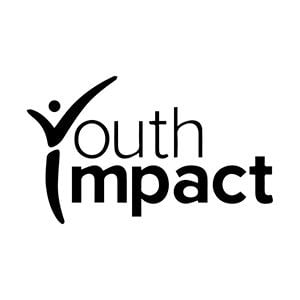Share Content
Article Link Copied
2022 Best Practice Prize – Youth Impact

Based in Gaborone, Botswana, Youth Impact, is a grassroots, youth-led, evidence-based movement. Its aim is to identify, adapt and scale-up health and education programs, by young people for young people. Last year it reached a milestone of having helped 100,000 young people.
Youth Impact ran a rapid randomized trial and produced some of the world’s first experimental evidence during the pandemic to limit learning loss, reducing innumeracy by 31 percent. They are now launching replication trials globally, have an ongoing trial in adolescent sexual and reproductive health during the pandemic, and launched a suite of national radio programs. They have been building state-of-the-art monitoring and evaluation systems which can generate rapid, rigorous and policy-relevant evidence for years. During the pandemic, these systems proved critical.
Youth Impact’s programs includes Zones, an innovative, evidence-based 90-minute class delivered in government schools by peer educators. The program reveals the unknown risks of older partners and encourages youth to safely date each other instead of older partners, demonstrating a 40 percent reduction in pregnancy, an increase of HIV knowledge of nearly all participants and a reduction of risky behaviour by 50 percent. Teaching at the Right Level (TaRL) is a cost-effective remedial education program. TaRL is proven to improve basic numeracy and literacy skills in early primary years through learner-centred materials tailored to students’ current competency levels. It has been delivered to 20 percent of primary schools in Botswana, with 80 percent of students learning a new mathematical operation in just 30 days.
ConnectEd is a remote, low-tech education program which delivers simple maths tutorials by phone and SMS/text. Tested in an additional five countries around the world with 15,000 children during the coronavirus pandemic, ConnectEd has been shown to reduce innumeracy by up to 31% for enrolled children and the ability to deliver the equivalent of one year of high-quality education per US$100. Through ConnectEd, Youth Impact has extended its reach beyond Africa to Nepal and the Philippines, and reached over 25,000 children globally.
ConnectEd was declared a “Smart Buy” for improving learning in low- and middle-income countries by a global panel convened by the Global Education Evidence Advisory Panel, co-convened by World Bank, UK FCDO, and UNICEF. ConnectEd receives generous support from a coalition of funding partners, including Jacobs Foundation, Mulago Foundation, Echidna Giving, Douglas B. Marshall III, J-PAL, Stavros Niarchos Foundation, and UBS Optimus Foundation. Additionally, sixteen partners comprise ConnectEd’s research and implementing coalition, including the World Bank and the governments of Nepal and the Philippines.
Since Youth Impact’s initial Botswana study, its replication trials of phone-based approaches to targeted instruction with partners in five countries (India, Kenya, Nepal, Uganda, and the Philippines) have tested external validity across contexts and the potential for wider scale-up. The latest results maintain impacts on foundational numeracy for enrolled children, with targeted interventions producing even greater learning gains, suggesting mobile phones provide a cheap and scalable way to target and teach to a student’s level. Moreover, they find that teachers can be equally effective at delivering the program as hired tutors, representing the possibility for a wider path to scale. With TaRL’s strong record of evaluation in multiple randomized trials across Kenya, India, and Ghana and a growing body of evidence from ConnectEd trials in six countries, Youth Impact is now seeking to understand how these two delivery models can be used together to produce the greatest impacts.